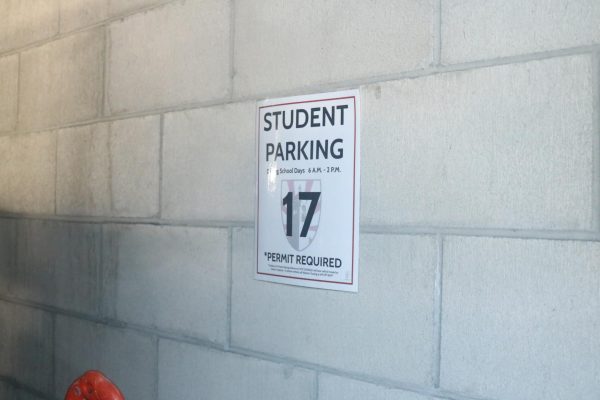Breaking Down the English Curriculum Changes
Examining why the English curriculum has changed and how it will affect students
Starting with the class of ‘25, juniors will have the option to take American Literature or apply for Honors American Literature, as opposed to the electives that have been offered in previous years.
The announcement came on February 16 in the form of an email: the English curriculum for rising juniors and seniors would be changed for the 2023-2024 school year. Rather than having the option to take electives junior year, students of the class of ‘25 will take either American Literature or Honors American Literature. As for seniors, they will have the ability to take electives, Honors Writing, or Honors American Literature, but will also have the option to apply for Advanced Honors English. But why was this change made, and what effects will this have on students?
“Every year we [the English department] reflect on what’s working in our curriculum and what we might tweak or improve,” explained Head of the English Department Dr. Anna Clark, “and one of the things we kept coming back to was the junior [experience].”
This year, juniors have had the opportunity to take semester-long electives such as Banned Books and Epic Epics. Dr. Clara Boyle, the English teacher leading the design of the American Literature class, acknowledged that “The semester electives are wonderful for the range and variety they offer, but we found that students were sometimes not making the progress we would hope for.”
Dr. Clark theorized that the sudden class change halfway through the year severs the connection between teachers and students, making it more difficult to get to know the students and provide helpful feedback. Having a year-long course, however, will allow for more consistent and informed guidance.
Dr. Boyle said“I look forward to establishing the kind of community in my English III classes that a year-long course allows.” The year-long classes help students become more comfortable sharing and discussing their work with each other, hopefully resulting in better conversations not just with teachers, but with peers.
The class is also designed to expand upon skills already developed in English I and II. Dr. Boyle acknowledged that the teachers’ “goal is to guide students into more complex writing: analysis of multiple texts, hybrid forms, and exploratory essays incorporating analysis, research, and personal narrative.”
But American Literature was also designed with other classes’ curricula in mind. According to the email sent on February 16, the class “will develop cross-curricular connections and enhance the cohesiveness of our upper school humanities education.” This is most likely referring to the recent rearrangement of history classes; this year, sophomores have taken US History rather than the traditional European history, meaning that American Literature will allow students to find more connections between the two classes.
Dr. Boyle acknowledged this as one of the goals in creating the class, adding that she is “particularly looking forward to exploring intersections between American history and literature … as well as larger questions raised by the texts we’ll read, like what it means to be American.”
When creating this curriculum, teachers were careful to include literature that would address “urgent questions about identity, diversity, and culture,” according to Dr. Clark. She elaborated, saying that being an American is a complicated identity that should be explored by reading literature from authors of various cultures and backgrounds.
This sentiment was shared by Dr. Boyle, who said that the class will promote “inclusivity, both in terms of the voices represented in the curriculum and the genres and forms employed by the authors.”
Even though there are good reasons for it, not all students are happy about the change: Sabrina Li (‘24) thinks that this new system will incentivize students to take “honors classes for the sake of taking honors classes.” Deprived of the chance to explore a topic they genuinely enjoy through an elective, Sabrina worries that juniors will be more inclined to take the honors course because they think it will look better on their transcript. There might also be a similar effect on seniors, who will be able to take Honors Writing and Honors American Literature without applying, and might take them simply because they can.
But while there might be some trepidation among students, Dr. Clark says that, for faculty, there is “generally a lot of excitement” about the class, even though English teachers will temporarily have their workloads added to as they prepare the course.
Even though the 2023-2024 school year may not be what every rising junior had in mind, they will still be taking an English class with a thoughtfully-designed curriculum, plenty of interesting books, and assignments to improve their writing skills.

Lucy is a senior and Lead Content Editor for The Tower. This is her fourth year on the staff and second on the editorial team, and she can’t wait to...






